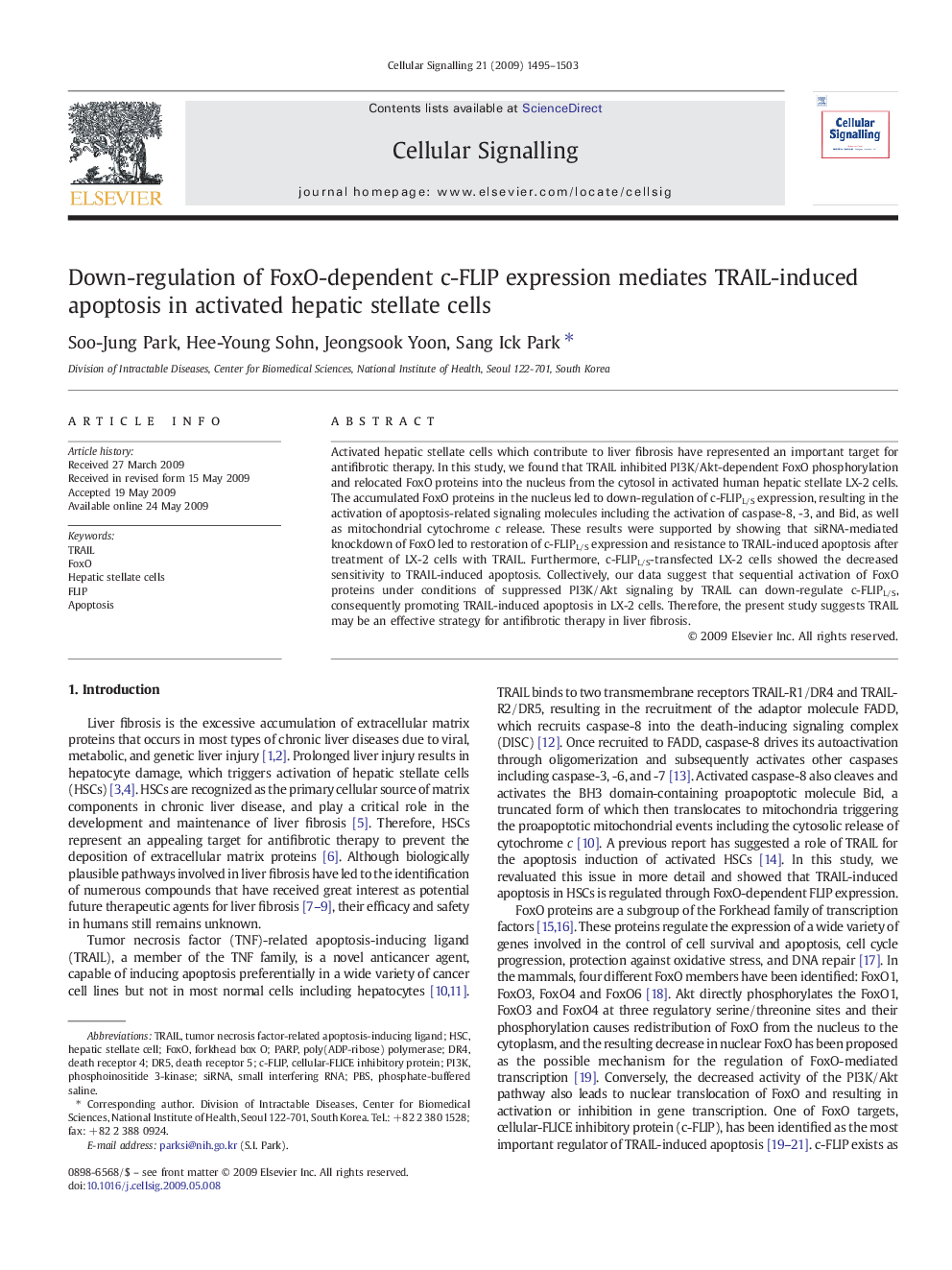| Article ID | Journal | Published Year | Pages | File Type |
|---|---|---|---|---|
| 1963872 | Cellular Signalling | 2009 | 9 Pages |
Activated hepatic stellate cells which contribute to liver fibrosis have represented an important target for antifibrotic therapy. In this study, we found that TRAIL inhibited PI3K/Akt-dependent FoxO phosphorylation and relocated FoxO proteins into the nucleus from the cytosol in activated human hepatic stellate LX-2 cells. The accumulated FoxO proteins in the nucleus led to down-regulation of c-FLIPL/S expression, resulting in the activation of apoptosis-related signaling molecules including the activation of caspase-8, -3, and Bid, as well as mitochondrial cytochrome c release. These results were supported by showing that siRNA-mediated knockdown of FoxO led to restoration of c-FLIPL/S expression and resistance to TRAIL-induced apoptosis after treatment of LX-2 cells with TRAIL. Furthermore, c-FLIPL/S-transfected LX-2 cells showed the decreased sensitivity to TRAIL-induced apoptosis. Collectively, our data suggest that sequential activation of FoxO proteins under conditions of suppressed PI3K/Akt signaling by TRAIL can down-regulate c-FLIPL/S, consequently promoting TRAIL-induced apoptosis in LX-2 cells. Therefore, the present study suggests TRAIL may be an effective strategy for antifibrotic therapy in liver fibrosis.
